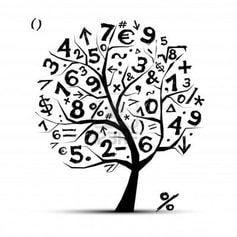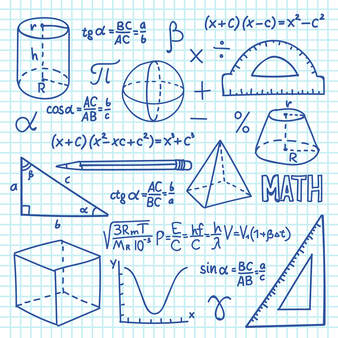Mathematics
Mathematics

Learning MATHEMATICS develops logical reasoning, analysis, problem-solving skills, creativity, and the ability to think in abstract ways. It uses a universal language of numbers and symbols, which allows us to communicate ideas in a concise, unambiguous and rigorous way. Mathematics is both rich and stimulating, engaging learners of all ages, interests and abilities.
Mathematics equips us with many of the skills required for life, learning and work. Understanding the part that mathematics plays in almost all aspects of life is crucial.
Using mathematics enables us to model real-life situations and make connections and informed predictions. It equips us with the skills we need to interpret and analyse information, simplify and solve problems, assess risk and make informed decisions.
Mathematics equips us with many of the skills required for life, learning and work. Understanding the part that mathematics plays in almost all aspects of life is crucial.
Using mathematics enables us to model real-life situations and make connections and informed predictions. It equips us with the skills we need to interpret and analyse information, simplify and solve problems, assess risk and make informed decisions.

Learners will be involved in the following types of tasks:-
The department offers the following courses:
National 4 Mathematics, National 5 Mathematics, National 5 Applications of Mathematics (further info below),
National 5 Numeracy, Higher Mathematics & Advanced Higher Mathematics.
More information on these courses can be found at
https://www.sqa.org.uk/sqa/45750.html
Career Paths in Mathematics
For those who have a head for figures, pursuing a job related to mathematics is a choice that can add up to a rewarding and lucrative career. Whether they are using maths to solve business problems or make investments, students who love maths can use their skills in a variety of ways.
The demand for mathematics experts has grown exponentially in a number of careers. In fact, mathematician, actuary, and statistician jobs are among the most promising career paths based on their income levels and growth outlook.
For further advice on career paths visit the following pages:
http://www.mathscareers.org.uk/
https://www.learnhowtobecome.org/careers-in-mathematics/
- Collaborative and independent.
- Problem solving and critical thinking.
- Explaining thinking and presenting strategies and solutions.
- Questioning and discussion.
- Using technology where appropriate to extend experience and confidence.
- Making links across the curriculum to encourage transferable skills.
The department offers the following courses:
National 4 Mathematics, National 5 Mathematics, National 5 Applications of Mathematics (further info below),
National 5 Numeracy, Higher Mathematics & Advanced Higher Mathematics.
More information on these courses can be found at
https://www.sqa.org.uk/sqa/45750.html
Career Paths in Mathematics
For those who have a head for figures, pursuing a job related to mathematics is a choice that can add up to a rewarding and lucrative career. Whether they are using maths to solve business problems or make investments, students who love maths can use their skills in a variety of ways.
The demand for mathematics experts has grown exponentially in a number of careers. In fact, mathematician, actuary, and statistician jobs are among the most promising career paths based on their income levels and growth outlook.
For further advice on career paths visit the following pages:
http://www.mathscareers.org.uk/
https://www.learnhowtobecome.org/careers-in-mathematics/












